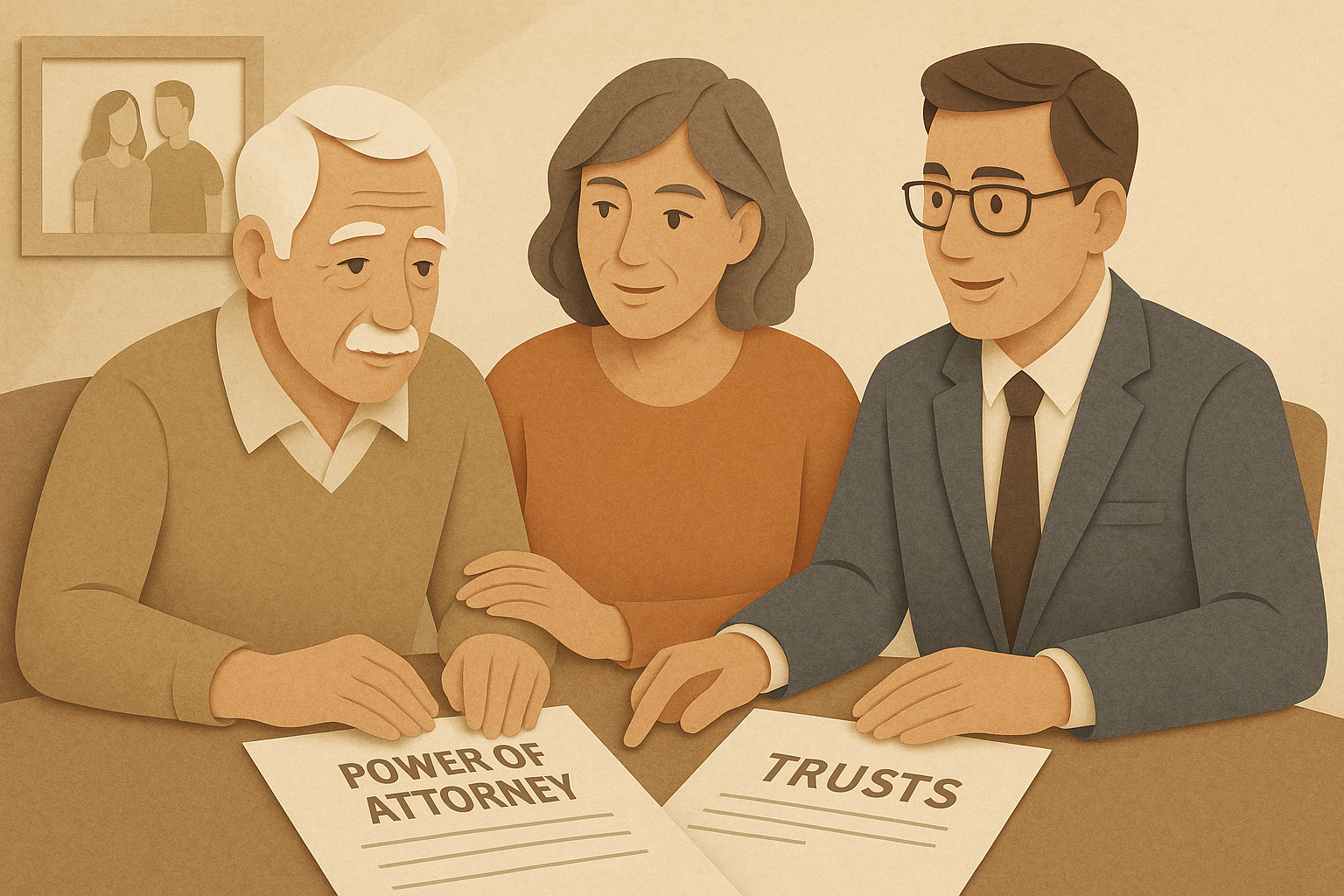
Understanding the Cost and Value of an Elder Law Attorney
How much does an elder law attorney cost?
It’s one of the first questions families ask, and for good reason. When you’re juggling medical bills, worried about long-term care, or trying to figure out who has legal authority in a crisis, every dollar matters.
But here’s the truth: focusing only on cost can miss the bigger picture. The better question is: What is the value of an elder law attorney?
Because the best elder law attorneys don’t just prepare documents. They guide families through some of life’s hardest seasons, legally, financially, and emotionally.
What Does an Elder Law Attorney Actually Do?
Elder law is a specialized practice that addresses the challenges older adults and their families face before the end of life. While estate planning focuses on what happens after death, elder law focuses on the years before.
It covers:
-
Protecting assets from nursing home costs
-
Qualifying for Medicaid without losing the family home
-
Drafting powers of attorney and healthcare directives
-
Preventing elder financial abuse
-
Establishing guardianships when needed
-
Coordinating VA benefits and disability coverage
Think of elder law like building a bridge. You could try to swim across the river without one, but the bridge is safer, smarter, and far more reliable when the water rises.
Why Families Call Elder Law Attorneys
Most families don’t plan to hire an elder law attorney. They’re forced to by a sudden crisis. A diagnosis, a fall, or a hospital call is often the trigger.
Without proper planning:
-
Families may have to spend down savings unnecessarily
-
Guardianship battles can end up in court
-
Predators may target vulnerable elders
-
Siblings may fight over who has legal authority
Compare two families I’ve worked with:
-
One had no healthcare directive. The siblings disagreed about treatment, and the hospital had to make real-time decisions. It fractured their relationships.
-
Another client came in early, set up documents, and explained her wishes. Years later, when dementia advanced, her children knew exactly what to do without conflict, court, or chaos.
That’s the difference elder law planning makes.
The Real Cost of “Going It Alone”
The median monthly cost of a private nursing home room is over $9,500, or $114,000 a year. Medicaid has strict eligibility rules and a five-year lookback period. Without legal help, families risk losing hundreds of thousands in savings, triggering penalties, or even losing their home.
The financial and emotional toll of poor planning is far higher than the cost of hiring a lawyer.
For more insights, read our blog on Common Legal Myths About Working with an Elder Law Attorney.
How Much Does an Elder Law Attorney Cost?
Costs vary by location, complexity, and scope, but most attorneys use three models:
-
Flat Fees – For predictable services like wills, powers of attorney, or simple trusts. $1,500–$6,000.
-
Hourly Rates – Often for crisis planning or contested guardianships. $250–$500 per hour.
-
Comprehensive Packages – Bundled services covering trusts, Medicaid planning, and directives. $5,000–$12,000+.
These numbers might sound high, but compare them to what you could lose:
-
$300,000 in care costs over three years
-
$75,000 lost to probate delays and fees
-
$150,000 in missed benefits or tax credits
Seen in that light, the attorney’s fee is an investment.
The Hidden Value: Peace of Mind
Beyond numbers, here’s what you’re really paying for:
-
Powers of attorney that work when needed
-
Trusts that avoid probate and preserve assets
-
Medicaid eligibility through careful planning
-
Protection against financial exploitation
It’s not just documents. It’s confidence and control when life feels uncertain.
What Makes a Good Elder Law Attorney Worth It?
Not all attorneys specialize in elder law. Look for:
-
Memberships in NAELA (National Academy of Elder Law Attorneys)
-
Experience with Medicaid crisis planning
-
Knowledge of healthcare, tax, and real estate issues
-
Transparent pricing and clear communication
The right elder law attorney doesn’t just solve problems. They anticipate them.
Talking About Elder Law With Parents
It’s never easy to start the conversation, but it’s easier before a crisis. Try:
-
“I’d feel better knowing your wishes are in writing.”
-
“An elder law attorney can help you stay independent longer.”
-
“We should review your powers of attorney now, before they’re needed.”
It’s about compassion, not control.
When to Hire an Elder Law Attorney
The best time is before a crisis. But here are key triggers:
-
Dementia or chronic illness diagnosis
-
Moving into assisted living or a nursing home
-
Applying for Medicaid, VA benefits, or disability
-
No updated powers of attorney or healthcare directives
-
Signs of elder financial abuse
Early planning keeps more options open and usually saves money long term.
Proactive vs. Reactive Planning
Proactive planning means calm conversations, thorough strategies, and strong protections.
Reactive planning means rushed paperwork, fewer choices, higher costs, and more stress.
Even in emergencies, attorneys can help. But the earlier you act, the more control and protection your family has.
Cost vs. Value
Don’t just ask, “Can I afford an elder law attorney?” Ask, “Can I afford not to have one?”
Because when the nursing home calls for payment or a loved one loses capacity, you don’t want to be scrambling. You need a clear plan, trusted guidance, and an experienced hand who has walked this road before.
That’s what an elder law attorney provides: protection, peace of mind, and a guide through life’s hardest moments.
And that’s worth every penny.
Ready to start your succession plan? Contact Hackard Law today to protect your business, your family, and your legacy.

 (916) 775-8542
(916) 775-8542 